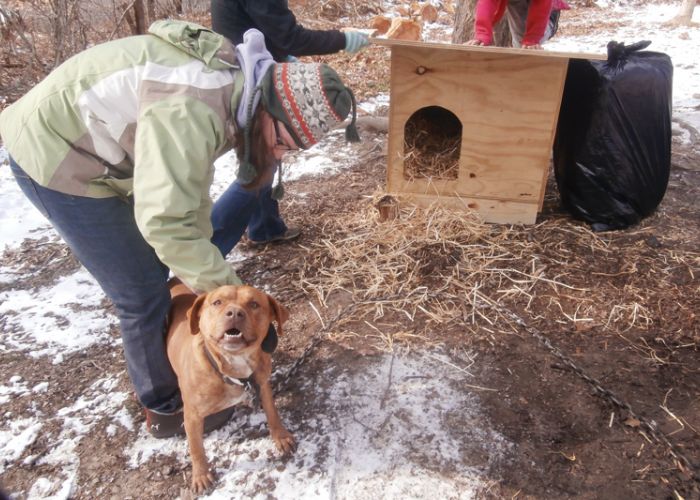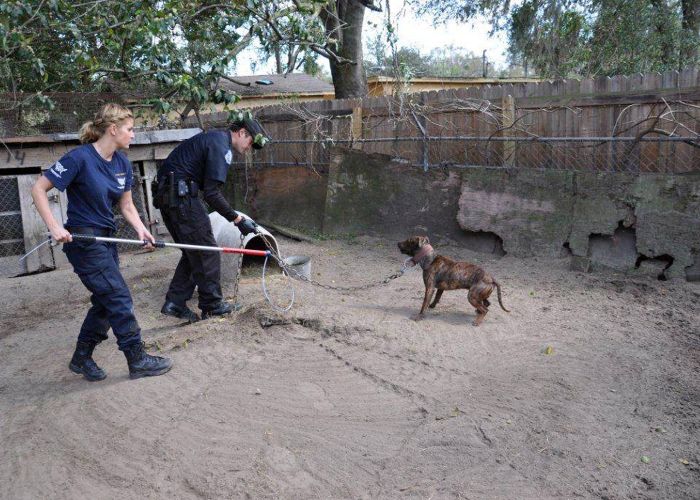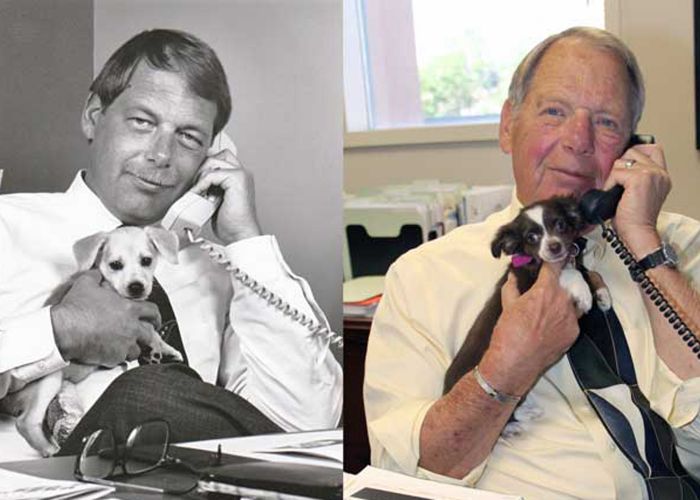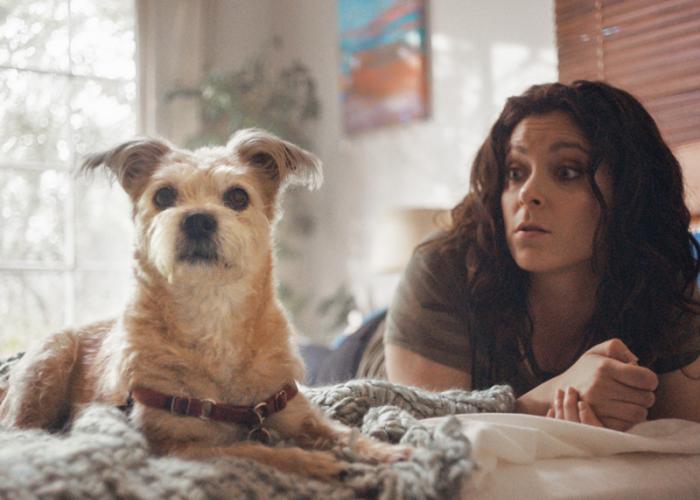The road home goes through the office
Shelters invite businesses to foster cats and promote adoptions
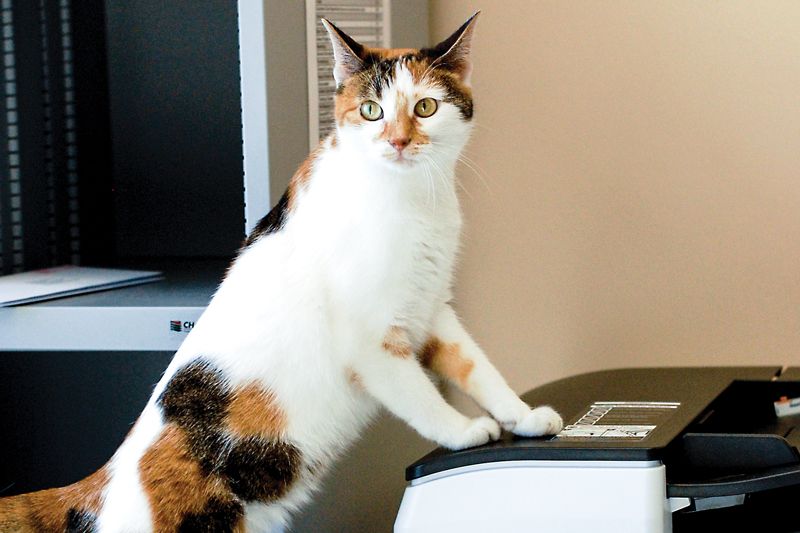
These workers don’t need a salary— they’ll work (or at least hang out) for room and board. They won’t wear a tie (probably), but they are more than happy to spend nights and weekends at the office.
If this sounds like a good deal, direct an inquiry to the Animal Rescue League of Iowa (ARL). The shelter is hiring out its felines to fill temporary jobs as “office cats” until they find permanent positions.
An ad on its website asking businesses to “hire” its cats is one way ARL promotes its Office Cat foster program. ARL and other shelters have started such programs to get adoptable cats more exposure by temporarily placing them at stores and offices. The programs also create space in their facilities for more animals and raise awareness of adoption.
“People come to us because they’ve already decided to adopt an animal, but people may be visiting another location for any number of other reasons,” says Melissa Levy, executive director of the Philadelphia Animal Welfare Society (PAWS), which has a similar program called Cats Around Town. “Once they get to meet this available animal, they may fall in love at first sight, or it may spark an idea to consider adopting [a pet].”
Processes vary by shelter, but all are fairly simple. At ARL, when a business wants to foster a cat, shelter staff will check out the facilities and share the details of proper care with employees. A lead person is responsible for the cats on paper, but the whole staff usually takes turns going to the office on weekends to care for the animal. Some businesses are open every day anyway, but there haven’t been any problems when the cats are left alone, says Cindy Gerke, ARL foster coordinator.
Then, the cats work their feline charm on visitors (or employees or owners) until someone adopts them.
“People will say, ‘I’m not a cat person; I’m a dog person.’ Well, once you have the opportunity to spend several hours of your day watching the antics of these little, fun, feline critters, some people’s minds change,” says Courtney Thomas, president and CEO of the Great Plains SPCA in the Kansas City metro area, which has adopted about 20 cats through three businesses with its Nine to Five Felines program.
ARL has partnered with five businesses, and used its own administrative office, to foster 20 cats—mostly in small office spaces, but Gerke would also love to see its cats in retail stores.
To find businesses to work with, the shelters rely on social media, word-of-mouth and even a door-to-door approach.
From the businesses’ perspectives, fostering is good public relations and a staff morale boost. Employees get the chance to help animals without taking on all the responsibility of fostering at home, and at the same time, they enjoy the “opportunity to snuggle and love on a pet,” says Thomas.
In Philadelphia, PAWS found the most success working with businesses it already knew. Its foster partners include a pet supply store, a veterinary physical rehabilitation facility and a technology company.
Thomas, Gerke and Levy agree that although their programs have been successful, they want to see more furry temp employees at local businesses. After all, the felines earn their keep. Gerke recalls a story about an ARL foster cat at a legal aid office who appeared to sense that a client was upset when she came in for counsel. He sat on her lap throughout her whole appointment.
“She was petting him, and it helped her get through that,” says Gerke. “It was really touching.”


